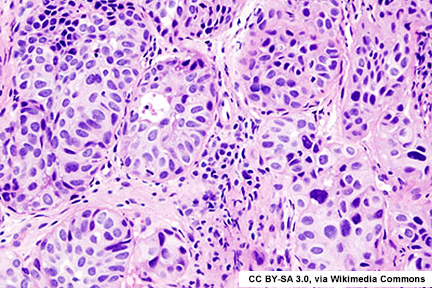MD
Rush S. Dickson Distinguished Professor of Medicine
Co-Leader, UNC Lineberger Cancer Genetics Research Program
UNC-Chapel Hill
Urologic Oncology Program
Cancer Genetics, Clinical Research
Meet William Kim
Area of Interest
Kim is a laboratory-based physician-scientist. Clinically, Kim takes care of patients with genitourinary malignancies.
The Kim Laboratory studies the genetics and cancer biology underlying the initiation and progression of bladder and kidney cancers. The Kim Lab uses in vitro methods as well as patient derived xenograft tumors and genetically engineered murine (GEM) models of cancer. Kim co-directs UNC’s Mouse Phase 1 Unit (MP1U) and is involved in the Next Gen sequencing of both human cancer genomes as the interim Director for Precision Oncology for UNC Lineberger.
Awards and Honors
- Rush S. Dickson Distinguished Professor, 2015
- Bladder Cancer Advocacy Network (BCAN) Innovation Award, 2014
- Elected member, the American Society of Clinical Investigation (ASCI), 2014
- AACR, Kure It, Grant for Kidney Cancer Research, 2012
- University Cancer Research Fund, Innovation Award, 2010
- DOD Prostate Cancer, Physician Research Training Award, 2010
- Damon Runyon, Clinical Investigator Award, 2009
- Joan’s Legacy Lung Cancer Foundation Award, 2008
- DOD Prostate Cancer New Investigator Award, 2008
- Harvard Medical School Scholars in Medicine Award, 2003
- ASCO Young Investigator Award, 2002
- White Prize, for study in Economics, Wesleyan University, 1992
- Howard Hughes Research Fellow, Wesleyan University, 1991
News and Stories

Scientific retreat underscores impact and promise of cancer center’s research
UNC Lineberger's annual scientific retreat brought together faculty, staff and trainees to learn about the latest research at the cancer center.

Genetic analysis of the most common type of bladder cancer in patients with metastatic disease yields guidance on treatment options
A genomic study of more than 200 people with the most common type of bladder cancer that has spread could help guide how the cancer would respond to immunotherapy.

Pylayeva-Gupta published in Cell Reports Medicine
UNC Lineberger’s Yuliya Pylayeva-Gupta, PhD, was the corresponding author of a paper published in Cell Reports Medicine that examined how B cells might be reprogrammed to improve anti-tumor immune response in pancreatic cancer. The study was led by a former research associate, Rahul Mirlekar.

Chemotherapy plus immunotherapy before surgery is beneficial for invasive bladder cancer outcomes
Tracy Rose, MD, MPH, Matthew Milowsky, MD, and colleagues report that the regimen reduced the invasiveness of the cancer in 56% of patients in a phase II clinical trial.

